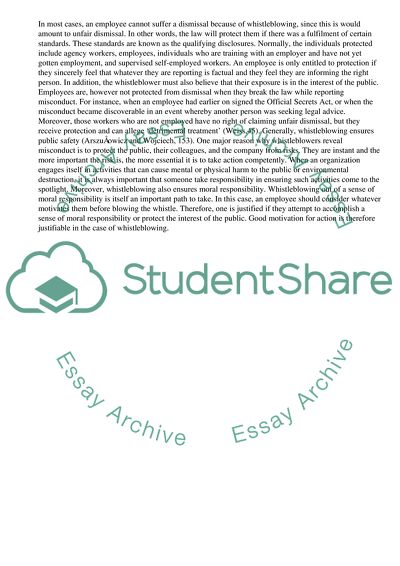Cite this document
(Critique of Whistle-blowing Coursework Example | Topics and Well Written Essays - 1250 words, n.d.)
Critique of Whistle-blowing Coursework Example | Topics and Well Written Essays - 1250 words. Retrieved from https://studentshare.org/management/1641941-long-essay
Critique of Whistle-blowing Coursework Example | Topics and Well Written Essays - 1250 words. Retrieved from https://studentshare.org/management/1641941-long-essay
(Critique of Whistle-Blowing Coursework Example | Topics and Well Written Essays - 1250 Words)
Critique of Whistle-Blowing Coursework Example | Topics and Well Written Essays - 1250 Words. https://studentshare.org/management/1641941-long-essay.
Critique of Whistle-Blowing Coursework Example | Topics and Well Written Essays - 1250 Words. https://studentshare.org/management/1641941-long-essay.
“Critique of Whistle-Blowing Coursework Example | Topics and Well Written Essays - 1250 Words”, n.d. https://studentshare.org/management/1641941-long-essay.


